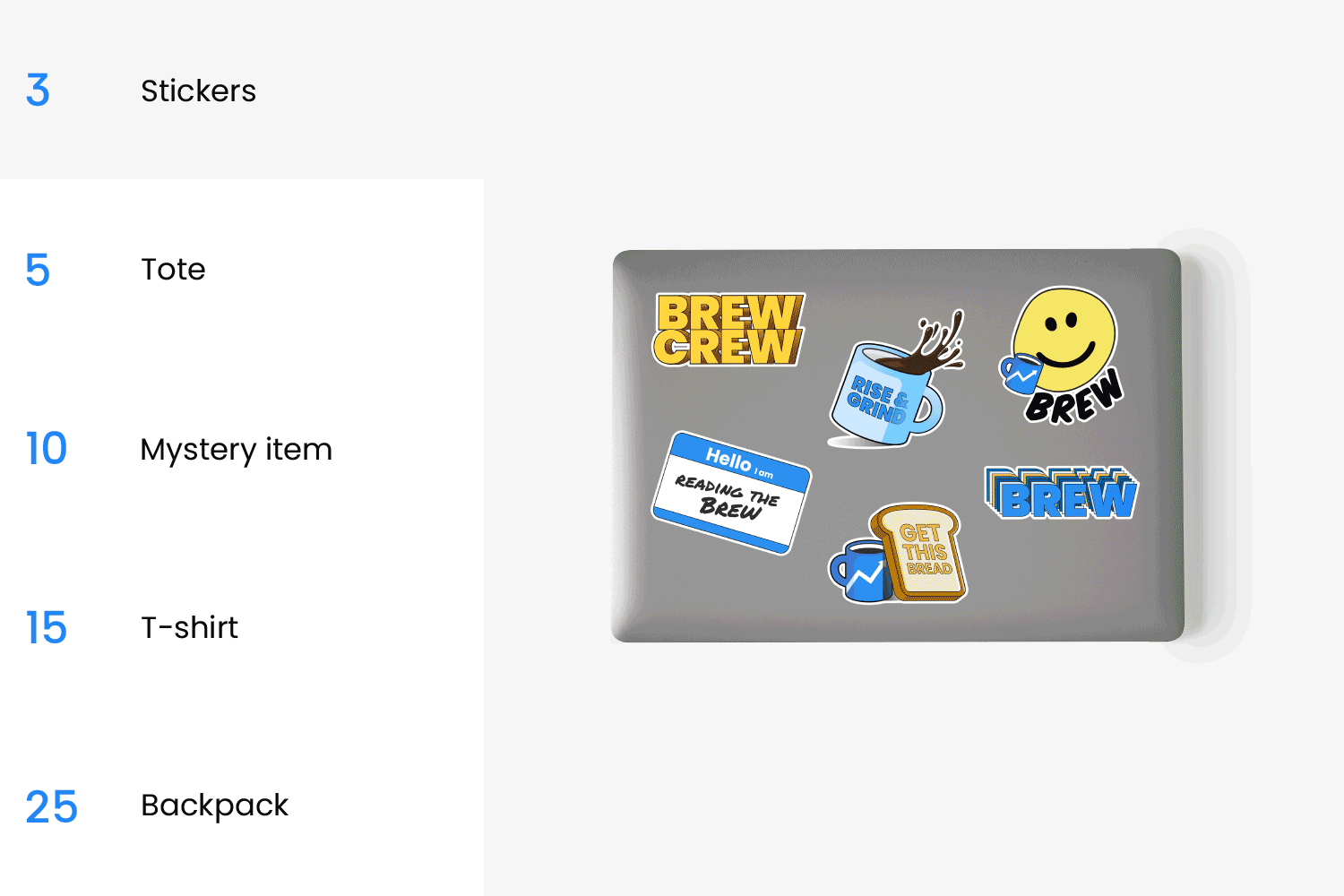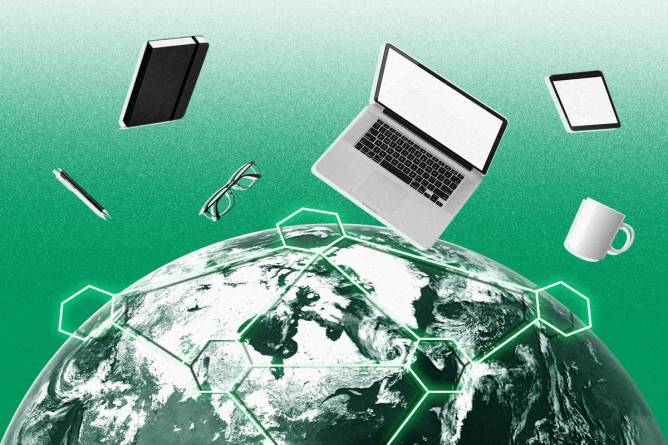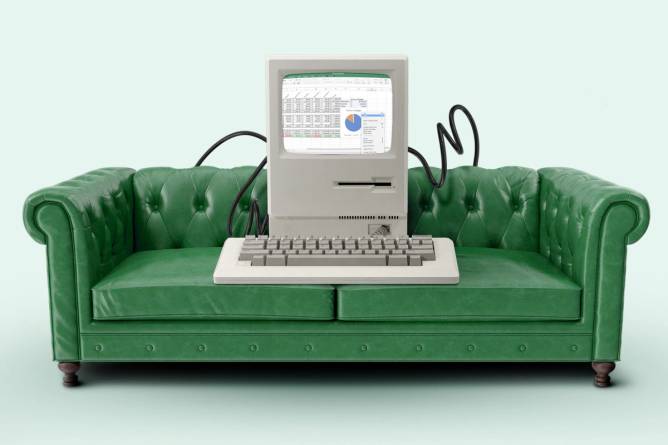Win Mcnamee/Getty Images
|
President Joe Biden touted a strong labor market in the March 7 State of the Union address that was widely viewed as a kickoff to his 2024 re-election campaign.
HR Brew broke down key labor and workforce takeaways from his speech with Acting US Labor Secretary Julie Su.
Good economy, bad vibes. In his speech, the president ticked off a lengthy list of economic gains since he was sworn in, including the creation of 15 million jobs over the past three years, historic low unemployment, and job and small-business growth among Black, Hispanic, and Asian-Americans. But despite these strong statistics, polling indicates many Americans still feel bad about the economy. Some 51% of polled voters rated US economic conditions as “poor” in a February 2024 New York Times-Siena College poll. High inflation, high cost of living, and a lack of good paying jobs/low wages were cited among Americans with fair or poor assessments of the economy, Pew Research found in January.
One reason some Americans might be feeling bad about their pay, despite average hourly wage growth remaining above 4% year over year, is observing how it compares to those of the executives they work for, Su suggested. “We have seen a decades-long growing gap between CEO pay and frontline worker pay,” Su said. “I’ve been in the room where CEOs make $10, $15, $20 million a year, and their frontline workers are struggling to make enough to afford to live near where their job is.”
Keep reading here.—CV
|
|
|
Assembling your own global dream team stacked with top talent is an exciting time for any business. But it also means overcoming onboarding, benefits, payroll, and compliance hurdles.
Deel is here to help. With their all-in-one global people platform, you can customize compliant localized contracts, run global payroll in 100+ countries, and streamline your HR admin.
And with Deel’s free international hiring guide, they’ll walk you through everything you need to navigate global hiring smoothly and compliantly.
Learn more about:
- finding and attracting global talent
- which labor laws to consider when hiring
- processing international payroll on time
- staying compliant with employment and tax laws abroad
Go global with this guide.
|
|
Francis Scialabba
|
Cigna’s pharmacy benefits management unit, Evernorth Health Services, said on March 7 that it will limit how much employers spend on GLP-1 weight loss medications annually, Healthcare Brew reported.
Under the deal, which Evernorth branded an “industry-first financial guarantee for GLP-1 spend,” clients won’t see the cost of weight loss and diabetes drugs increase more than 15% each year, Evernorth spokesperson Justine Sessions told HR Brew. Evernorth inked agreements with two major GLP-1 manufacturers, Novo Nordisk and Eli Lilly, on the spending cap.
For some health plans, the annual cost of these drugs is increasing by 40%–50% annually, CNBC reported. Lowering employer spending on GLP-1s is one way to expand insurance coverage for them, the outlet suggested.
Why GLP-1 costs are a major employer concern. The drugs offer great promise for the 40% of the US population struggling with obesity. They also have the potential to help companies attract talent, as 44% of adults with obesity would consider switching jobs to get covered for this treatment, an April 2023 survey by virtual care company Ro found.
Keep reading here.—CV
|
|
Francis Scialabba
|
Barbieland seems like a utopia for women, who hold all the social, political, and business power. But here in the real world, women still have fewer rights than men in every single country, according to a new report from the World Bank.
Where in the world? Well, everywhere. The latest Women, Business, and the Law report, released on March 4, analyzed 190 countries. It found that women have fewer rights than men in every country, especially when considering legal differences such as childcare and protections against violence.
While 98 countries have equal pay laws, just 35 have pay transparency laws or processes to measure the gender pay gap. Globally, women earn 77 cents on the dollar, which delays when they can retire and how much they must work for a standard of living similar to that had by men. Even in wealthy, progressive countries with smaller pay disparities, such as New Zealand and Iceland, women still fall behind their male counterparts.
Satellite view. Despite being the wealthiest country in the world by GDP, according to the International Monetary Fund, the US still has a sizable gender pay and equity gap, and is one of just a few wealthy countries, including Japan and China, that does not mandate pay equality. Some companies, like L’Oreal and Intel, share their pay parity journeys publicly, while states like California, Colorado, and Washington have introduced transparency regulations to help close the gap, HR Brew previously reported.
Keep reading here.—KP
|
|
TOGETHER WITH CHEGG SKILLS
|
|
Don’t trip on skills gaps. What’s blocking business transformation? According to 60% of companies, it’s a gap in essential—and revenue-boosting—skills. These gaps can also cost organizations hundreds of thousands of dollars in attrition-related costs. Luckily, Chegg Skills can help you close those critical gaps through strategic skilling in tech, management, and AI. Level up.
|
|
Level up your career with these resources from our sponsors!
|
|
Francis Scialabba
Today’s top HR reads.
Stat: 50%. That’s the percentage of HR leaders who said they are prioritizing senior care benefits in a recent survey, up from 43% last year. (Care)
Quote: “We’re actually talking with a lot of clients about setting up internal task forces so that they have some rules of the road—and this is the first time we’ve ever suggested that to clients.”—Pam Jenkins, chief public affairs officer at Weber Shandwick, on how some businesses are preparing to handle politics in the workplace ahead of the 2024 election (Axios)
Read: US wages have stagnated following several years of growth in what some economists believe is a market correction. (BBC)
Recruiting for engineering talent?: Check out Propeller, a new careers platform backed by YouTube’s No. 1 engineering-focused creator, Real Engineering.* *A message from our sponsor.
|
|
|
Share HR Brew with your coworkers, acquire free Brew swag, and then make new friends as a result of your fresh Brew swag.
We’re saying we’ll give you free stuff and more friends if you share a link. One link.

Your referral count: 2
Click to Share
Or copy & paste your referral link to others:
hr-brew.com/r/?kid=9ec4d467
|
|
ADVERTISE
//
CAREERS
//
SHOP
//
FAQ
Update your email preferences or unsubscribe
.
View our privacy policy
.
Copyright ©
2024
Morning Brew. All rights reserved.
22 W 19th St, 4th Floor, New York, NY 10011
|
|










